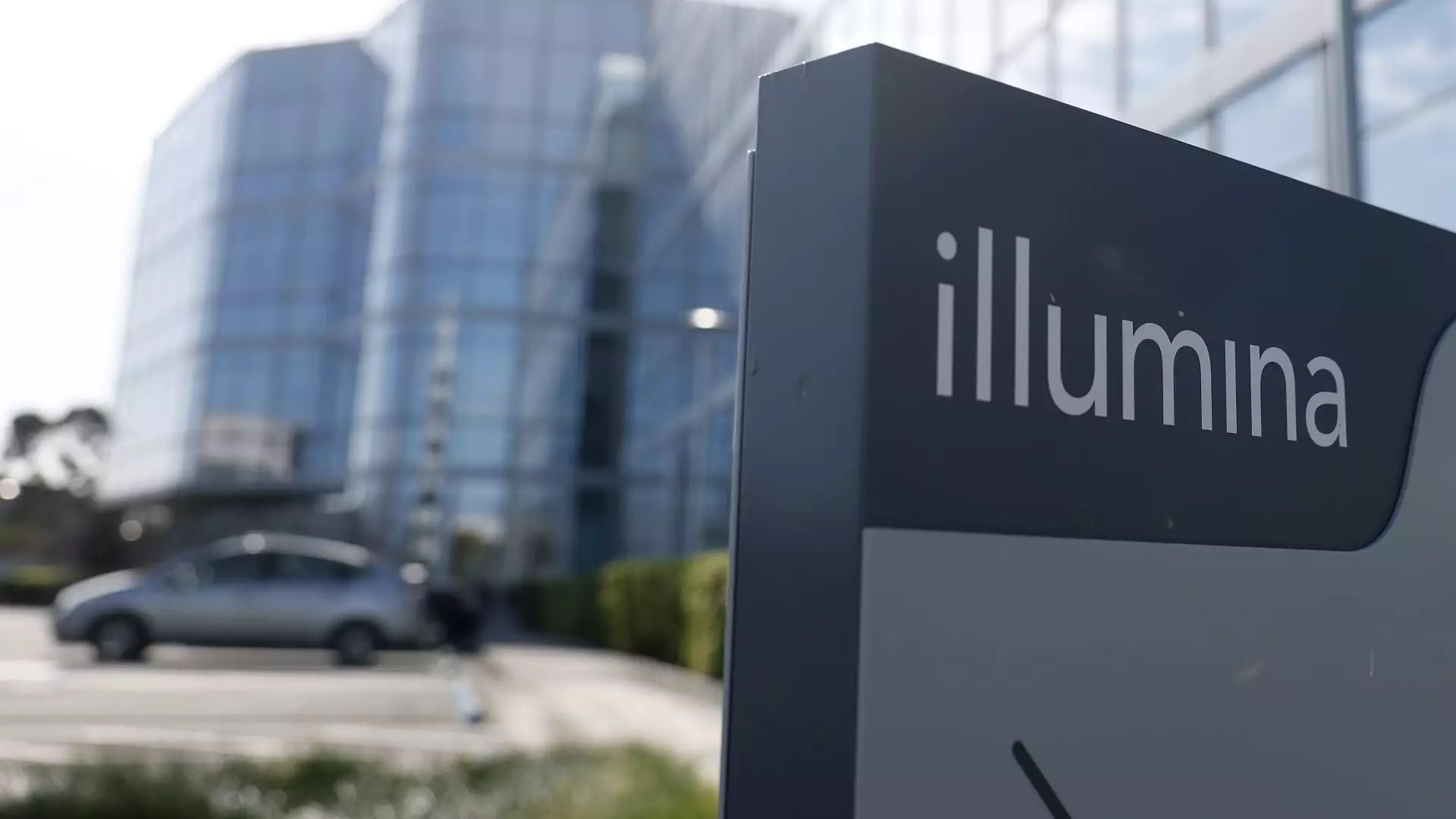Illumina has long been the cornerstone of the genomic sequencing industry, with a market capitalization hovering around $12.67 billion as of now. Despite recent turmoil, the company’s prowess in DNA sequencing and array-based solutions has enabled it to capture over 80% of the global market share. Positioned as a market leader, their innovative sequencing technology—rooted in reversible terminator-based chemistry—has transformed genetic analysis across research and clinical landscapes. This foundation sets the stage for a seemingly bright future, but it has not come without drastic turbulence.
The Post-Pandemic Plummet
After a substantial surge in demand during the COVID-19 pandemic—where revenues skyrocketed by nearly 40%—Illumina has seemingly hit rock bottom. Following a glorious peak, the company’s stock price plummeted to a disheartening $80 per share from an astronomical high of $511. The decline stems from multiple factors but is heavily punctuated by the costly saga surrounding its Grail spin-out and then reacquisition, which ultimately culminated in a substantial loss of investor confidence. This is troubling given the once-bustling aspirations of driving innovation post-pandemic have instead been replaced by apprehension and potential instability.
The Grail Debacle: A Cautionary Tale
Illumina’s journey with Grail has all the makings of a cautionary narrative in the corporate world. After spinning off Grail in 2016 when it had high-risk, high-reward potential, the company decided to reacquire it for $8 billion in 2021 without U.S. Federal Trade Commission or European Union approval. Such arrogance not only drew regulatory scrutiny but also risked diluting Illumina’s reputation as a responsible biotech leader. Europe’s strong pushback against the acquisition and the subsequent fine only highlighted the degree to which Grail became a liability rather than an asset. The immunization of shareholder sentiment has only accelerated since then, as Illumina’s stock operations became synonymous with instability.
Fresh Faces with Familiar Stakes
Despite recent challenges, Illumina is betting on new leadership to usher in an era of recovery. Appointments like Keith Meister—an activist investor with a long history of enhancing shareholder value—signal that a decisive pivot may be on the horizon. Meister’s strategy typically pivots towards longer-term sustainability rather than short-term profits. His plans for Illumina’s board may counterbalance prior missteps by emphasizing strategic collaboration rather than coercive activism. As a center-right liberal in a corporate landscape teetering on more progressive social goals, one must wonder if Illumina is rearming itself to pivot towards more robust governance.
The Challenge of Next-Gen Sequencing
As Illumina endeavors to transition into the next generation of sequencing technology—spotlighting their NovaSeq X system—a tricky dynamic looms. While this pivot represents a natural evolution that could herald significant growth in the coming years, initial setbacks and declining revenues are expected during the adjustment period. Adopting this new technology could lead to a short-term revenue squeeze, but it’s a risk that speaks to a calculated strategy in the ever-evolving biotech field. The razor-and-blade model, typical for companies like Illumina, has historically allowed for profitability via high-margin consumables, but during periods of transition, those profits can become volatile.
Riding the Geopolitical Wave
Compounding Illumina’s troubles is the geopolitical instability that threatens its operations in major markets like Russia and China. As Illumina attempts to streamline its business amid global upheavals and an uncertain regulatory landscape, it bears the added pressure of navigating increasingly restrictive political climates. Coupled with the uncertainties surrounding funding from institutions like the National Institutes of Health, the company must work doubly hard to ensure it remains competitive on an international scale. For a center-right advocate, this brings light to the urgent need for biotech firms to not only innovate but to also engage in smart geopolitics that secure their interests globally.
Although caution is warranted for investors watching Illumina’s stock performance, a renewed leadership team paired with strong market hold does inspire a sliver of optimism. The road ahead may be fraught with complexity, but understanding the layers of Illumina’s predicament reveals a resilient organization poised to navigate the storm, potentially emerging stronger on the other side.

